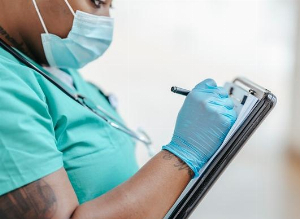What rights do participants have in a clinical trial?
Published 26 Mar 2021 • By Candice Salomé
By participating in a clinical trial you are contributing to the advancement of medicine and science. Moreover, you are putting all the chances on your side since you will benefit from an innovative treatment. But this can be frightening and it is only normal and right for participants to ask themselves a number of questions.
Are there any risks involved in participating in a clinical trial? What rights do participants have? Is it possible to withdraw from a trial?
We tell you everything in our article!

Conducted by health professionals, clinical research aims to improve knowledge of the structure, biology and function of the human body and understanding of the development of disease. It also allows more reliable or advanced diagnostic techniques to be developed, as well as more effective or less invasive treatment techniques.
The aim of clinical research is therefore to advance current knowledge about the human body through the development and implementation of clinical trials.
However, patients are often reluctant to take the plunge for fear of the possible risks
By definition, there is no such thing as zero risk, since clinical research aims to test drugs. Indeed, volunteers may be confronted with possible side effects from the drug being tested. Nevertheless, adverse effects are systematically recorded and analysed.
If a danger arises during a clinical trial, it is immediately stopped.
It is important to remember that the analysis of side effects is vital and helps to assess the benefit/risk ratio of a new drug.
Clinical trials are very carefully regulated and patient safety is at the heart of every trial.
How is a clinical trial organised?
Before the Brexit transition period ended on 31 December 2020, clinical trials were regulated by the EU Clinical Trials Directive, with the partnership of the Medicines and Healthcare Regulatory Agency (MHRA) whose role is to review and authorise trials. The EU CTD's aim was to harmonise the running of clinical trials across the UK and the EU member states. Following the end of the transition period and the passing of the Medicines and Medical Devices Act 2021, the MHRA has full control over clinical trial regulation and approval and has published its own UK-specific guidelines.
To start, the clinical trial must receive ethical approval from a Research Ethics Committee (REC) organised by the Health Research Authority, as well as a Clinical Trial Authorisation (CTA) from the MHRA. NHS R&D approvals must also be in place before the trial starts.
With the exception of certain emergency trials involving vulnerable subjects, participants must give their informed consent before being entered into a trial. Informed consent includes decision capacity, documentation of consent, disclosure and competency. A patient has the right to withdraw his or her consent at any time.
The participant is kept informed throughout the clinical trial.
Prior to participation, the participant has a long meeting with a doctor during which he or she can ask any questions, fears or concerns they may have.
Throughout the process, a medical team monitors the volunteers and remains at their disposal.
Patients' rights in a clinical trial
Right to refuse to take part in clinical research
Every patient has the right to decline taking part in a clinical trial when approached, and they do not have to justify themselves. The patient's care must remain unaffected if he or she refuses. The patient then signs a document attesting that the quality of his or her medical care and her relationship with the health care team will not be affected by the decision not to participate in the trial.
As mentioned previously, informed consent is mandatory for any participation in a clinical trial.
Right to clear, honest and complete information
Throughout the clinical research, the participant must receive clear, honest and adequate information. This information must take into account the participant's level of understanding.
Right to confidentiality
Any data collected as part of the clinical trial must be stored securely and in accordance with data protection law. Personal information must not be disclosed to a third party.
Right to withdraw from research
A patient may withdraw from a clinical trial at any time without having to provide a reason why.
Right to access and change data
Patients can access and change the information given in the clinical trial.
Right to be informed of the trial results
Upon request, participants should receive the full results of the clinical trial.
Was this article helpful to you?
Share your thoughts and questions with the community in the comments below!
Take care!
Sources:
- Être volontaire à un essai clinique, Inserm
- Les droits et devoirs des participants à un essai clinique, AFMPS
- Essai clinique : droits du patient, Planète Santé
- Comment s’organise la protection des patients au cours des essais cliniques ?, Leem
- Droits du patient, Gustave Roussy
- Informed Consent, National Institute for Health Research
- Good practice in research and Consent to research, General Medical Council
- Clinical trials, Gov.uk

 Facebook
Facebook Twitter
Twitter


